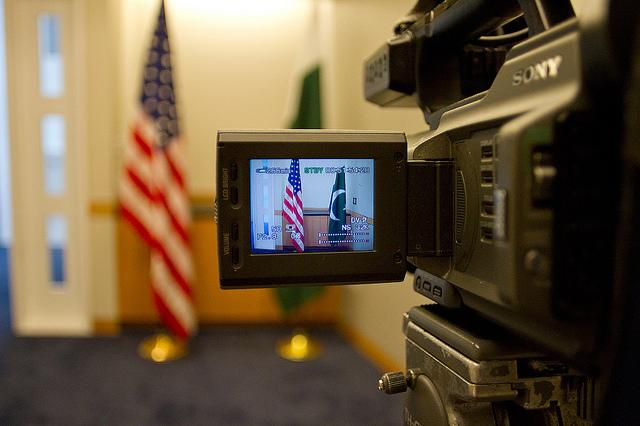
On 1 August, the parliament of Pakistan overwhelmingly elected Shahid Khaqan Abbasi as the new prime minister following the Supreme Court’s decision to unanimously declare that Prime Minister Nawaz Sharif was not ‘honest’ and that therefore he was ‘disqualified to be a Member of Parliament’. Sharif subsequently resigned.
Sharif’s departure is unlikely to change much externally and domestically. And although he has also had to relinquish the leadership of his party, the Pakistan Muslim League (PML-N), he will still have de facto control. It’s quite probable that his brother, Shahbaz Sharif, the chief minister of Punjab, will take over as party leader.
The new prime minister retained most of Sharif’s cabinet ministers but also almost doubled the size of the cabinet to 47 members. The big cabinet change, however, is that Pakistan will finally have a foreign minister, a portfolio that Sharif had retained for himself for the past four years.
The new foreign minister, Khawaja Asif, who is a staunch ally of the former prime minister, is a hardliner on India. For example, in September 2016 in response to an Indian cross-border raid (one that is still disputed by the Pakistan military), Asif said that ‘If India tries to do this again, we will respond forcefully’, referring to an earlier comment in which he stated that Pakistan would use its nuclear weapons to annihilate India if the country’s survival was threatened. He also said soon after being sworn in that ‘Pakistan would help Kashmiris achieve their right to hold a referendum’. So we can’t expect an immediate improvement in bilateral relations unless there’s a dramatic (and unlikely) clamping down by the military on the Pakistan-based jihadists who regularly conduct raids across the Indo-Pakistan border.
Turning to Afghanistan, relations with Kabul will continue to be tense and difficult as long as the Taliban and the Haqqani network continue to conduct terrorist acts in Afghanistan, some of which are planned from Pakistan. So it’s not surprising that Afghan President Ghani stated in June, ‘Afghanistan is enmeshed in an undeclared war with Pakistan’. However, an improvement in bilateral relations is dependent on more than those two actors. The new foreign minister acknowledged as much when he said that Pakistan wanted friendly relations with Afghanistan but ‘India must also play a part to make it a reality’.
Of course, bilateral relations between Pakistan and Afghanistan will be influenced by what Washington decides to do in Afghanistan. A multiagency review has been going on for months looking at possible options that the Trump administration could consider. That review, which was meant to be finalised by mid-July, has now been broadened to cover American policy towards India and Pakistan. That is good news because Afghanistan cannot be considered in isolation. However, the White House remains divided, confused and confusing over this issue. At a recent meeting, President Trump repeatedly stated that he wanted to dismiss the top American commander in Afghanistan, the highly respected General John Nicholson, for failing to ‘win’.
Despite the three-year-long military operation by the Pakistan military against the various Afghan terrorist groups hiding in Pakistan’s borderland tribal areas, there’s still lingering suspicion in the higher echelons of the US military and bureaucracy that Pakistan is running with the hare as well as hunting with the hounds. More bluntly, National Security Adviser H.R. McMaster stated in a recent interview that the Taliban and the Haqqani network have bases in Pakistan. Not surprisingly, Congress recently withheld the $50 million it was due to reimburse Pakistan under the Coalition Support Fund arrangement for failing to do enough to hunt down the terrorist groups. Increasingly, officials are wondering what sort of pressure can be put on Pakistan to change its ways. The acting US assistant secretary of state for South and Central Asian affairs and acting special representative for Afghanistan and Pakistan, Ambassador Alice Wells, recently stressed during a visit to the region that Pakistan’s soil mustn’t be used to plan or conduct terrorist attacks against its neighbours. I suspect this pressure will increase considerably in the coming months.
The chairman of Pakistan’s Senate Defence Committee, Senator Mushahid Hussain, recently said at a meeting here in Washington that he was hoping that there would be clarity from the Trump administration on its approach to South Asia. Unfortunately, given the infighting in the White House, it’s unlikely that we’ll be getting clear guidance on this matter anytime soon.
The real winner from the ouster of Sharif is the military. The generals never particularly liked him, which feeds the conspiracy theory among his supporters that it was the military that was behind his ouster. The army didn’t like his (failed) attempt at negotiating with the Pakistan Taliban (the TTP, as it is known here). They also didn’t appreciate his overtures to India, especially because they were made without prior consultation.
Given the way he has come to power, PM Abbasi has a weak political hand vis-à-vis the military. Accordingly, it’s unlikely that the government will be in a position to improve bilateral relations with India and Afghanistan, and certainly not without the military’s agreement.
So while the ouster of Nawaz Sharif was a good thing for the governance of the country, little will change in Pakistan.